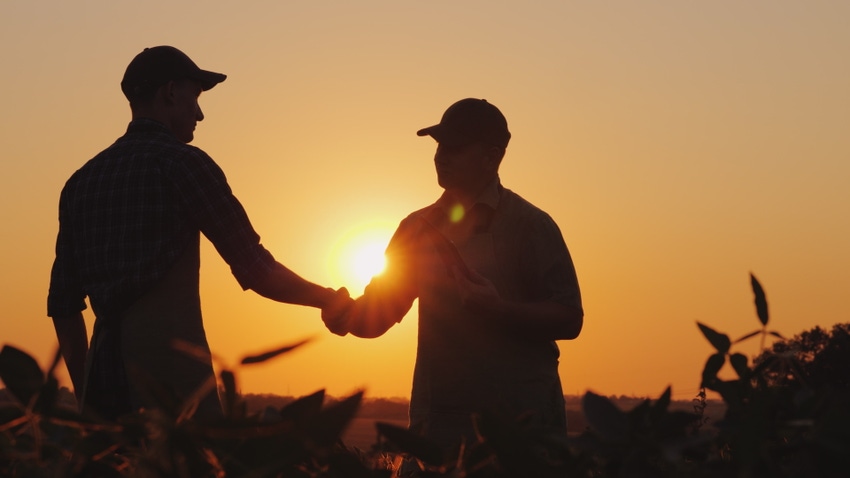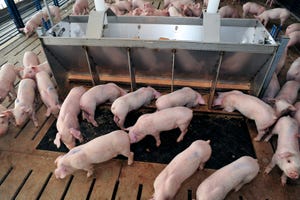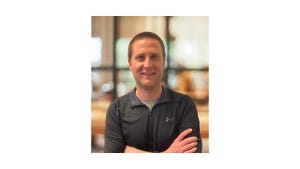Fostering resilience on the farm
To build a resilient mindset, Shunkwiler recommends focusing on three basic areas.

Thad Shunkwiler is often asked what happened in his life to get him interested in agricultural mental health.
“I'm not joking when I say it starts with sex, drugs and rock and roll, it really does, oh, and failing out of high school,” Shunkwiler says.
After his mom sent him to live on his grandparents’ farm, Shunkwiler says he developed a strong connection to the agricultural community.
“I learned a lot on that farm. I learned all about life and how to persevere through challenges, but what I learned, maybe the most, was that I didn't want to be a farmer,” Shunkwiler says.
He then went on to join the U.S. army, serving during and after the Sept. 11 attack. While he lost several of his buddies in combat, the veteran says he lost twice as many to suicide after combat. It wasn’t until he got in trouble again, and was court ordered to get treatment, Shunkwiler realized he wanted to work in mental health—an area where demand has been outpacing supply for some time.
“We had this huge campaign to destigmatize mental health and make it okay to not be okay, and to get help if you need help,” says Shunkwiler, who has over a decade of experience in treating people with mental health and substance use disorders in rural Minnesota. “I'm happy that we've had those conversations but what we didn't do, at the same time, was build the workforce so we could meet the capacity of what was going to happen. We didn't graduate any additional psychologists but what we told the community is ‘go get therapy.’”
He refers to the current situation as a “treatment gap” and in rural Minnesota, that gap is even wider, with few resources available. And rural Minnesota can’t wait for that gap to close, especially with the current mental health crisis.
That’s why Shunkwiler and his colleagues at the Center for Rural Behavior have been focusing on prevention.
“We can't always prevent mental illness but we can prevent mental unwellness and we can definitely prevent suicide,” Shunkwiler says.
Resilience, or the process of adapting well in the face of adversity, trauma, tragedy, threats or significant sources of stress, is key. He likens it to dropping an egg or a tennis ball, whereas the egg would go splat, the tennis ball would bounce back up.
While Shunkwiler recognizes the agriculture industry is no stranger to resilience, there are skills producers can adopt for any stressful situation.
“We think of resilience as being strong like Superman but it's not that at all, so it doesn't matter how strong you are, doesn't matter how smart you are, resilience is a skillset that has to be learned,” Shunkwiler says. “You're not born with a sense of resilience, it's something that you develop over time.”
He also reiterates resilience is not a treatment for mental illness, but a way to deal with stress.
To build a resilient mindset, Shunkwiler recommends focusing on three basic areas:
Prioritizing relationships: Connecting with people can remind you that you are not alone in the midst of difficulties. Focus on finding trustworthy and compassionate individuals who validate your feelings, which will support the skill of resilience.
Maintain a hopeful outlook: It’s hard to be positive when life isn’t going your way. An optimistic outlook empowers you to expect that good things will happen to you. Try visualizing what you want, rather than worrying about what you fear.
Count your blessings: Pick a time every week to sit down and write about your blessings—reflecting on what went right or what you are grateful for. The brain can’t compute anxiety and gratitude at the same time.
Shunkwiler says it’s also critical for people to know their limits. “I think the measure of how intelligent someone is, is not what they know, but their willingness to admit what they don't know. That's the measure of intelligence, is what's left to learn.”
However, he says it’s important to recognize mental health is a complex medical issue and can sometimes require professional intervention, especially if there are suicidal thoughts or comments. It’s also crucial for producers to know there are resources available and its ok to lean on experts.
As director of the Center for Rural Behavior, Shunkwiler is also leaning on experts in the agricultural industry, partnering with organizations such as the National Pork Board and Minnesota Pork. He often references a quote from the Minnesota Pork website in his work with producers, “the better the people, the better the pigs.”
“They get that, the people, they are the drivers in this profession,” Shunkwiler says.
About the Author(s)
You May Also Like





